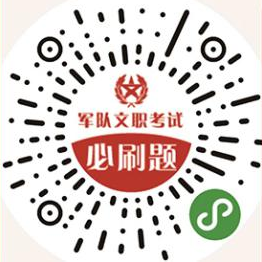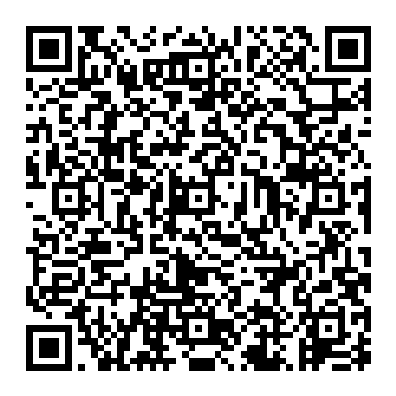2020年军队文职招聘考试法语语法学习材料:指示代词用法解析例句一览-解放军文职人员招聘-军队文职考试-红师教育
2020年军队文职招聘考试法语语法学习材料:指示代词用法解析例句一览发布时间:2019-07-21 13:43:581.1.不定式的名词特征 与英语的不定式基本相同,在句中可作主语、表语、宾语、状语、补语等。 Bavarder avec lui est un tr s grand plaisir. (主语) Il est difficile de r parer cette vieille voiture. (实质主语) Vouloir, c est pouvoir. (表语) Paul aime lire et crire. (直接宾语) On parle de b?tir des h?pitaux. (间接宾语) Nous faisons des conomies pour acheter une machine crire. (状语) Notre professeur a eu l occasion de visiter le Louvre. (名词补语) Toto tait tonn d entendre papa crier. (形容词补语) 2.2.不定式的动词特征 与英语不定式相同,具有下列特征 1)1)可以有宾语、状语等。 Mon grand-p re pr f re commencer le roman policier par le milieu. Veux-tu remettre ma composition au professeur ? Nous nous sommes mis en route de bonne heure pour y arriver avant la nuit. 2)2)有现在时(即英语不定式的一般式)和过去时(即完成式)两种时态。 On a vu Pierre sortir de la librairie. Nous esp rons vous voir bient?t. Elle semble avoir lu cet article. Apr s后须用不定式过去时: Apr s avoir dit au revoir, il monta dans le train. Apr s s tre promen e, elle se remettra travailler. 注意不定式过去时中ne pas 的位置 Il a regrett de ne lui avoir pas r pondu temps. / Il a regrett de ne pas lui avoir r pondu temps. 3.3.有主动态和被动态。 Tout le monde veut suivre la conf rence sur NotreDame de Paris. Ce malade doit tre op r tout de suite, dit le m decin en chef. 4.4.可在句作谓语;而英语的不定式基本上无类似用法。 1)1)用于命令句,用作招贴、通知、处方等。 Ne pas fumer. Ralentir ! Agiter avant de s en servir. 2)2)用于感叹句,表示惊讶、愤慨、愿望等。 Comment ? Rouler 100 km l heure ! A votre ?ge, Monsieur, tre si obstin ! Ah ! vivre la campagne ! 3)3)用于疑问句,表示思考、犹豫。 Que faire ? O aller ? Pourquoi ne pas essayer encore une fois ? 4)4)用于介词de 后,在叙述文中,与e t 连用,表示突然发生的动作。 L enfant s approcha, et l oiseau de s envoler.
解放军文职招聘考试2016年6月英语四级听力文本第一套-解放军文职人员招聘-军队文职考试-红师教育
发布时间:2017-06-18 18:51:192016年6月英语四级听力文本第一套Section ADirections: In this section, you will hear three news reports。 At the end of each news report, you will hear two or three questions。 Both the news report and the questions will be spoken only once。 After you hear a question, you must choose the best answer from the four choices marked A), B), C) and D)。 Then mark the corresponding letter on Answer Sheet 1 with a single line through the centre。Questions 1 and 2 are based on the news report you have just heard。A)The International Labor Organization s key objective。B)The basic social protection for the most vulnerable。C)Rising unemployment worldwide。D)Global economic recovery。A)Many countries have not taken measures to create enough jobs。B)Few countries know how to address the current economic crisis。C)Few countries have realized the seriousness of the current crisis。D)Many countries need support to improve their people s livelihood。Questions 3 and 4 are based on the news report you have just heard。A)Serve standardized food nationwide。B)Put calorie information on the menu。C)Increase protein content in the food。D)Offer convenient food to customers。A)They will be fined。B)They will be closed。C)They will get a warning。D)They will lose customers。Questions 5 to 7 are based on the news report you have just heard。A)Inability to implement their business plans。B)Inability to keep turning out novel products。C)Lack of a successful business model of their own。D)Failure to integrate innovation into their business。A)It is the secret to business success。B)It is the creation of something new。C)It is a magic tool to bring big rewards。D)It is an essential part of business culture。A)Its hardworking employees。B)Its flexible promotion strategy。C)Its innovation culture。D)Its willingness to make investments。Section BDirections: In this section, you will hear two long conversations。 At the end of each conversations you will hear four questions。 Both the conversations and the question-s will be spoken only once。 After you hear a question。 You must choose the best answer from the four choices marked A),B),C)and D)。 Then mark the corresponding letter on Answer Sheet 1 with a single line through the centre。Questions 8 to 11 are based on the conversation you have just heard。A)He s got addicted to technology。B)He is not very good at socializing。C)He is crazy about text-messaging。D)He does not talk long on the phone。A)Talk big。B)Talk at length。C)Gossip a lot。D)Forget herself。A)He thought it was cool。B)He needed the practice。C)He wanted to stay connected with them。D)He had an urgent message to send。A)It poses a challenge to seniors。B)It saves both time and money。C)It is childish and unprofessional。D)It is cool and convenient。Questions 12 to 15 are based on the conversation you have just heard。A)He wants to change his job assignment。B)He is unhappy with his department manager。C)He thinks he deserves extra pay for overtime。D)He is often singled out for criticism by his boss。A)His workload was much too heavy。B)His immediate boss did not trust him。C)His colleagues often refused to cooperate。D)His salary was too low for his responsibility。A)He never knows how to refuse。B)He is always ready to help others。C)His boss has a lot of trust in him。D)His boss has no sense of fairness。A)Put all his complaints in writing。B)Wait and see what happens next。C)Learn to say no when necessary。D)Talk to his boss in person first。Section CDirections: In this section, you will hear three passages。 At the end of each passage, you will hear three or four questions。 Both the passage and the questions will be spoken only once。 After you hear a question, you must choose the best answer from the four choices marked A),B),C)and D)。Then mark the corresponding letter on Answer Sheet 1 with a single line through the centre。Questions 16 to 18 are based on the passage you have just heard。A)The importance of sleep to a healthy life。B) Reasons for Americans decline in sleep。C)Some tips to improve the quality of sleep。D)Diseases associated with lack of sleep。A)They are more health-conscious。B)They are changing their living habits。C)They get less and less sleep。D) They know the dangers of lack of sleep。A)Their weight will go down。B)Their mind function will deteriorate。C)Their work efficiency will decrease。D)Their blood pressure will rise。Questions 19 to 21 are based on the passage you have just heard。A)How much you can afford to pay。B)What course you are going to choose。C)Which university you are going to apply to。D)When you are going to submit your application。A)The list of courses studied。B)The full record of scores。C)The references from teachers。D)The personal statement。A)Specify what they would like to do after graduation。B)Describe in detail how much they would enjoy studying。C)Indicate they have reflected and thought about the subject。D)Emphasize that they admire the professors in the university。Questions 22 to 25 are based on the passage you have just heard。A)It was equipped with rubber tyres。B)It was built in the late 19th century。C)It was purchased by the Royal family。D)It was designed by an English engineer。A)They consumed lots of petrol。B)They took two passengers only。C)They were difficult to drive。D)They often broke down。A)They were produced on the assembly line。B)They were built with less costly materials。C)They were modeled after British cars。D)They were made for ordinary use。25。 A)It made news all over the world。B)It was built for the Royal family。C)It marked a new era in motor travel。D)It attracted large numbers of motorists。听力答案1. C) Rising unemployment worldwide.2. C) Few countries have realized the seriousness of the current crisis.3. B) Put calorie information on the menu.4. A) They will be fined.5. D) Failure to integrate innovation into their business.6. B) It is the creation of something new.7. C) Its innovation culture.12. A) He wants to change his job assignment.13. A) His workload was much too heavy.14. C) His boss has a lot of trust in him.15. D) Talk to his boss in person first.16 A) The importance of sleep to a healthy life17 C) They get less and less sleep18 D) Their blood pressure will rise19. B) What course you are going to choose20. D) The personal statement21. C)Indicate they have reflected and thought about the subject22 B) It was built in the late 19th century.23 D) They often broke down.24 A) They were produced on the assembly line.25 C) It marked a new era in motor travel.







